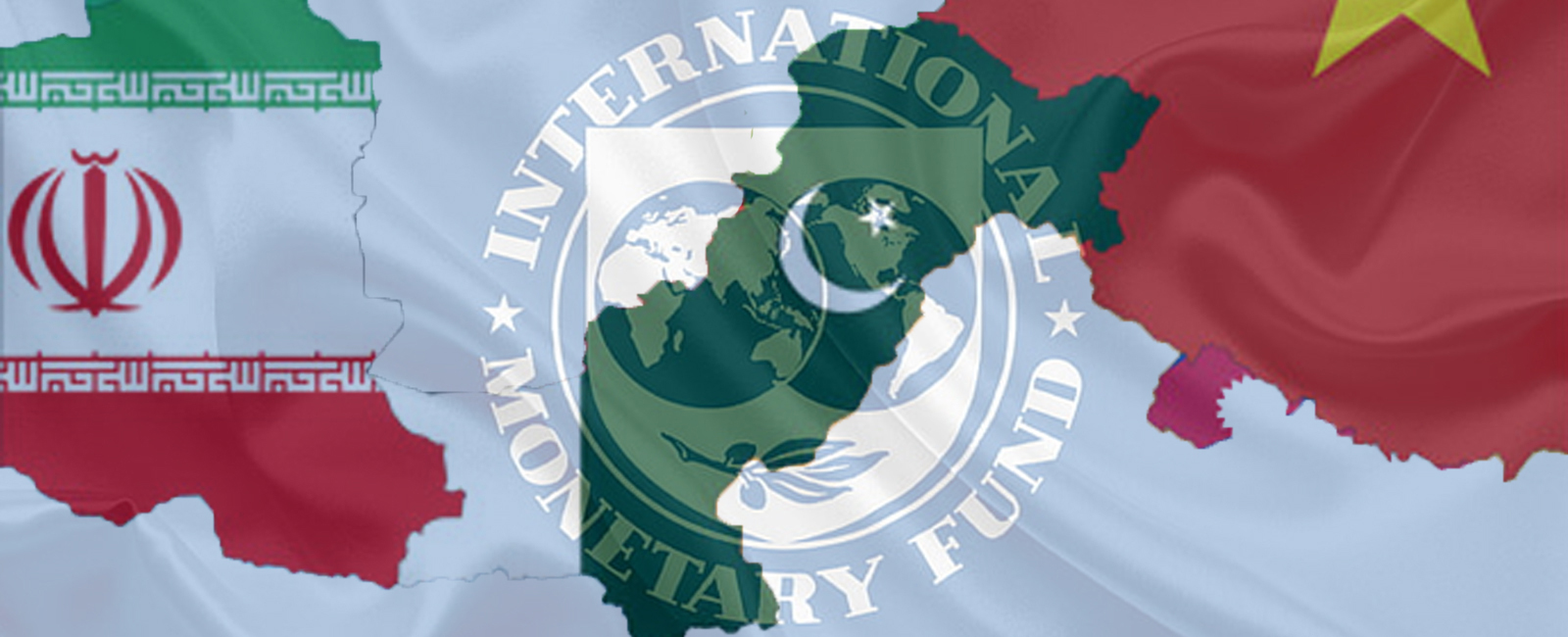Is US pulling IMF strings to turn up heat on Pakistan for Iran, China ties?
Cash-strapped Pakistan has a history of violating the terms and conditions laid forth by the lender of the last resort

Pakistan is deep in troubled economic waters and the only available lifeline, revival of the International Monetary Fund’s (IMF) $6.5 billion bailout, has become next to impossible, most likely because of the US frets over the country’s slant towards China and Iran, a couple of key regional powers.
The cash-strapped nation of more than 220 million people has a history of violating the terms and conditions laid forth by the lender of the last resort but the authorities in the past still somehow managed to convince the Fund.
However, this time the Pakistan Democratic Movement (PDM)-led coalition government is facing difficulties as the Washington-based lender is not showing any leniency.
Pakistan entered a 39-month, $6 billion IMF programme in 2019 which was extended till June 2023 and added another $1 billion in August last year when the board approved combined seventh and eighth tranche.
A look at the past shows that most of Pakistan’s previous bailouts — 13 since the late 1980s — were left uncompleted due to which the economy never fully recovered.
While the government continues to claim that it has met all the conditions of the IMF, analysts and economists are trying to weigh the reasons behind the board’s reluctance to complete the ninth review – which has been stalled since November last year.
Some said there is a political angle to the entire ninth review fiasco and others are now blaming Pakistan’s pivot towards China and Iran as the primary reason.
While Foreign Minister Bilawal Bhutto-Zardari denied any such claims, saying Pakistan-Iran relations have “nothing to do with IMF”, financial pundits still believe that this will further complicate the relations.
“China, by the way, has been extremely positive and helped us a lot in recent weeks by rolling over large amounts of debt. And that obviously kept Pakistan's financial position better, which is part of what the IMF wants. China is not at all a problem at this point,” Dr Hafiz Pasha, former finance minister, told Geo.tv.
It should be noted that a whopping 30% of Islamabad’s overall debt is owed to Beijing, with the much-stalled China-Pakistan Economic Corridor (CPEC) contributing to Pakistan’s fiscal predicament through skewed loan agreements. The country is in more Chinese debt than that of the IMF and World Bank.
However, Dr Pasha, identified that relations with Iran were a problem [for the US].
“Now that is a new relationship. The situation has changed in this regard as Saudi Arabia and Iran have signed an agreement of normalising relations. So that kind of has improved the Middle Eastern situation and Pakistan, at this point, has to honour some past commitments — like the lines that Iran laid and are still pending. So, there is a possibility, that America which is a notable member [of the IMF] might raise an objection to it,” he said, adding "until now, he doesn’t feel this has impacted the ninth review".
Meanwhile, South Asia Institute Director at The Wilson Centre Michael Kugelman said there were many reasons why the IMF is slow-walking the talks, but geopolitical considerations like these were not among them.
“For the IMF, it’s more about gaining sufficient assurances that Islamabad will meet the austerity policy conditions needed for funds, and that Islamabad is getting commitments of support from its top creditors. On both fronts, the IMF isn’t yet fully convinced,” he said denying all reports suggesting that the two new projects initiated between Pakistan and Iran would hamper the talks.
"But if this is not the issue what are the reasons that the IMF is delaying the approval despite Pakistani authorities meeting all requirements? In addition to looking for assurances on austerity policies and creditor commitments, the Fund is likely also cautiously looking at Pakistan’s paralysing political crisis and a government that’s seriously beleaguered,” the foreign policy and South Asian affairs analyst pointed out.
Meanwhile, Dr Pasha also voiced similar thoughts, saying that the country was facing an unprecedented situation. The quarterly review, he said, had been extended by five months or so “this happens rarely in IMF programmes”.
The former finance minister attributed the delay to the change in policies after the arrival of the new finance minister – Ishaq Dar.
“When the reserves dropped to $5 billion, then they went back to the programme and started implementing it rigorously. So, at that time, they believed that the IMF might agree to the programme. But what happened was that our credit ratings were so badly affected despite an IMF programme.
“Globally, the IMF is the lender of the last resort. IMF must have in mind that if a country, while they are in an IMF programme, defaults, then it will also affect their ratings. This is why they have been insisting on adequate external financing. I have said earlier that this is a chicken and egg problem [...] which has created this horrible delay," Dr Pasha maintained.
The former finance minister further added that without saying it explicitly, the IMF would also be concerned about the political situation in Pakistan and the acute political confrontation and stability. "Because that has an impact on the economy."
“This is a new factor that has emerged that intense political turmoil has emerged and IMF will be worried about Pakistan's future. Now, there's another concern about who will the IMF negotiate with after June […] I think it will be too hard at that time [for a new programme] as had the elections taken place earlier, it would've been better,” he said.
On the other hand, Kugelman said that If the political situation stabilised a bit, that may help move the needle forward. “But with the current agreement expiring next month, time is quickly running out and Islamabad is running out of time and options."
“It’s also in a serious predicament on policy. If it gives in and goes for full austerity, that will make it an even more unpopular government than it already is. But not committing to those policies could eventually result in default. What the government needs to do, but it’s hopelessly naive to think this will happen, is deescalate the political crisis so that it can free up the much-needed political bandwidth to at the least focus full attention on the economic crisis,” Kugelman concluded.
Dr Pasha also emphasised that Pakistan should decide what it wants to do. “I believe that for the first time in history, we are helpless. If we do not continue with the IMF programme, not a single penny will be given to us from multilaterals. All these multilaterals will stop, China has stopped giving us loans. If we don't follow up on the IMF deal, we are finished, gone, and we will default. It's as simple as that,” he said.




